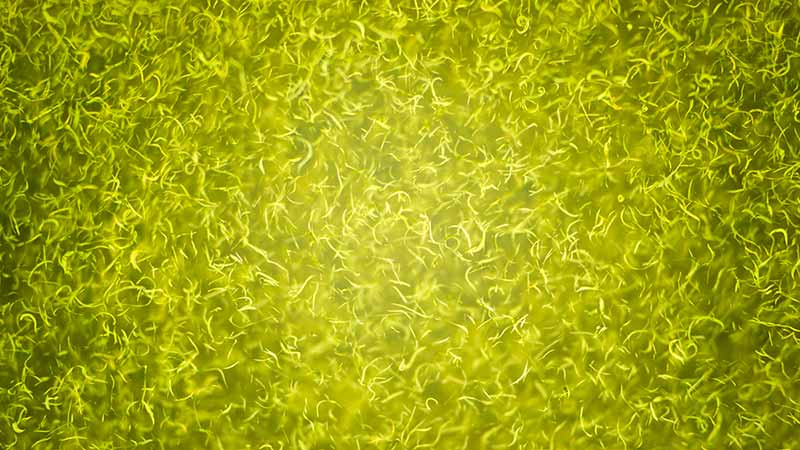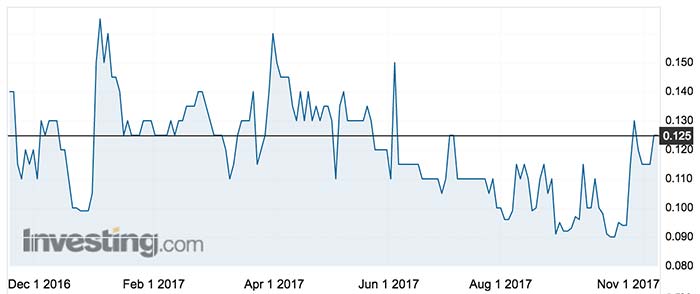Holista’s latest product is made from algae grown in a mystical bald eagle lake

Algea in the shallow water of Klamath Lake, where Holista's latest product comes from. Pic: Getty
Diverse “health-style” play Holista CollTech — known for halal-certified sheep collagen and low-carb noodles — now plans to market an algae supplement that apparently enhances stem cell growth.
Holista (ASX:HCT) has secured the global distribution rights for Klamax, which is sourced from the Aphanizomenon Flos-aquae (AFA) algae harvested from Klamath Lake in Oregon.
Klamath Lake is so pristine it’s the “only place in the United States where the bald eagle is still sighted”, Holista told investors yesterday.
The bald eagle is, in fact, still seen in various parts of the USA. Klamath is one of 13 recommended locations where people can catch a sight of the birds, according to the US Fish and Wildlife Service.
“The algae’s unusual properties are due in part to the fact that it grows on the surface of the lake that sits on top of a 7700-year bed of rich volcanic ash,” Holista said.

Dr Stefano Scoglio, who created Klamax from algal extracts Klamin and AphaMax, claims it can enhance “general wellness and anti-ageing health, by promoting and supporting a normal neurological, somatic and stem-cells physiology”.
Put simply this means the supplements help the body to continue to produce normal stemcells as it ages.
Holista plans to develop Klamax into pills or skin-based applications.
Holista has been contacted to explain the science behind the claims.
There is research to suggest that AFA can stimulate stem cell production in lab conditions, and does contain high nutrient levels.
Holista’s other recent projects include a $1 million retrofitted factory in Western Australia to make halal-certified collagen from “disease-free Australian sheep”, and low carb noodles to fight obesity.
In September, chief Dr Rajen Manicka sold his other business, network marketing company iGalen International, to Holista for $1, which is pending shareholder approval.
Not so clean
Lake Klamath’s algal blooms have been a hotbed for health supplement schemes since the 1980s.
Lake Klamath is nutrient rich, making it a good place for algae to grow.
But the blooms also suck up the oxygen from the water creating so-called ‘dead zones’, where fish and other lake life cannot survive.
While many companies — including Holista — claim the lake is “pristine”, University of California research showed this year that water quality in the Upper Klamath Lake had declined because of high “nutrient loading” which led to annual cyanobacterial blooms, primarily of AFA.
Both AFA and Microcystis aeruginosa algae are present in the lake.
The former looks like a grass, while the latter can produce a toxin called microcystin, which is also present in some Australian lakes and is dangerous to both humans and animals.
Dr Manicka told Stockhead that Holista’s “pristine” claim was due to environmental protections in the area around the lake, “analysis of the lake water” and “analysis of the algae found on the lake”.
UNLOCK INSIGHTS
Discover the untold stories of emerging ASX stocks.
Daily news and expert analysis, it's free to subscribe.
By proceeding, you confirm you understand that we handle personal information in accordance with our Privacy Policy.








